13 Foods at Risk of Price Hikes Because of Packaging Tariffs
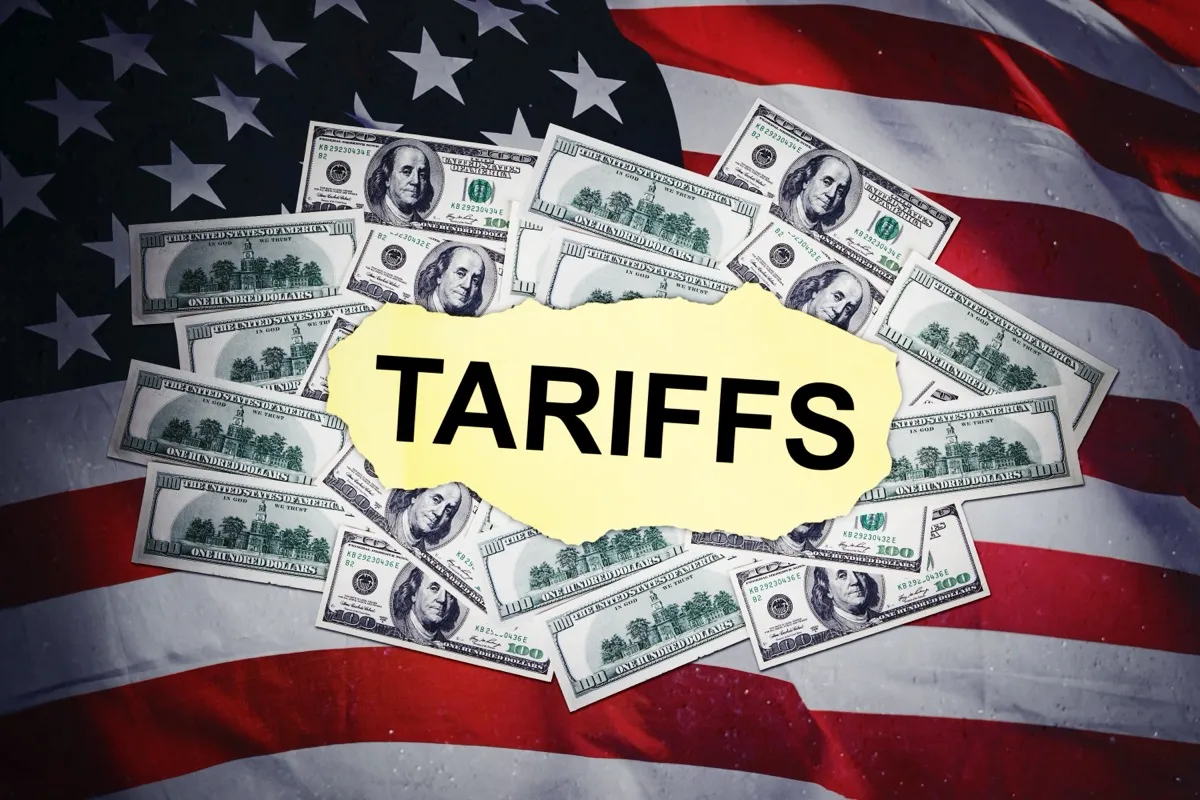
Grocery shoppers in the U.S. would be forgiven for seeing tariffs as something that impacts mostly electronics and food items—that's where the financial hit is usually felt first. But the trade war will also impact many products instrumental in shipping and packaging, like plastic and cardboard. This in turn could make everyday groceries even more expensive, as few of these items exist in a retail vacuum. Tariffs on minerals, semiconductors, lumber, and much more means certain staples could go up in price simply from the ripple effects of tariffs. "The risk from [tariffs] on products where there are few substitutes is greater," economist Gregory Daco told CNN. Here are 13 foods that may see price hikes soon.
Canned Soups and Vegetables
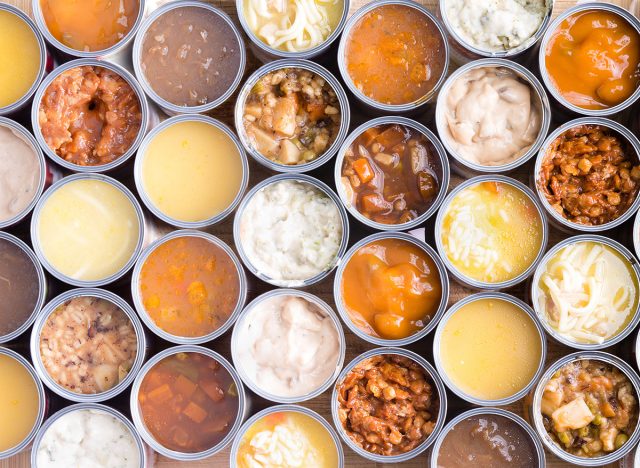
The United States primarily imports aluminum cans from Mexico, Canada, and Germany, so prices on canned soup and vegetables could go up. Ironically, people are actually stocking up on non-perishables to offset any possible future price hikes. "The recent step-up in spend per visit suggests a behavioral shift, potentially reflecting proactive responses to anticipated price increases," said Michael Gunther, head of insights for the Consumer Edge Insight Center.
Imported Olive Oil
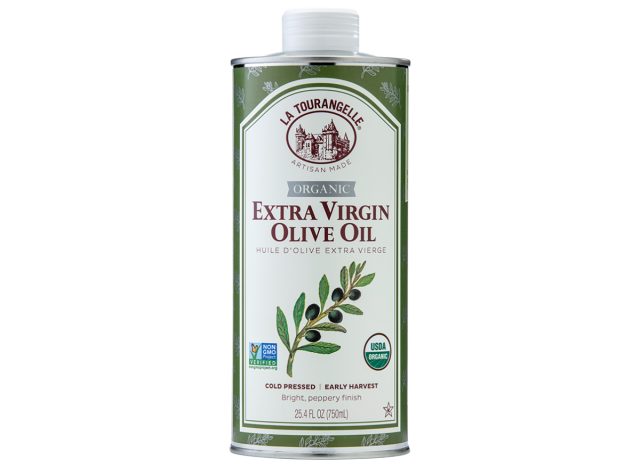
Olive oil is mostly packaged in Spain and Italy, with olives sourced from Italy, Spain, Greece, Turkey, and more. If the EU/U.S. retaliatory tariffs kick in, importing olive oil into the U.S. could become a very expensive venture. "In the medium to long term, we may have to make more investments in the United States, which ultimately are investments that will be made there instead of Europe," Antonio Luque, the CEO of Dcoop, one of the two partners behind the Pompeian brand of olive oil, told Reuters.
Frozen Dinners
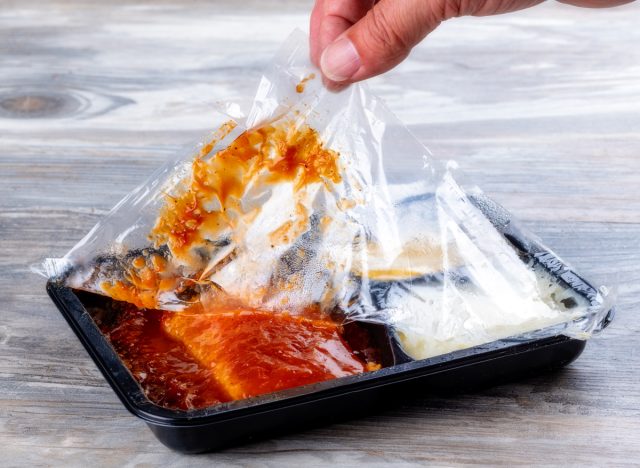
The U.S. imports a huge amount of plastic products such as trays and imported ingredients from China, Canada, Mexico, and more. Not only are tariffs on these goods already going to make them pricier, but the supply chain disruption could make it worse. "These tariffs will disrupt the movement of essential machines, products, and materials that keep American manufacturers running across sectors like healthcare, consumer products, and automotive," Plastics Industry Association CEO Matt Seaholm said, via PackagingDive.
Packaged Snacks
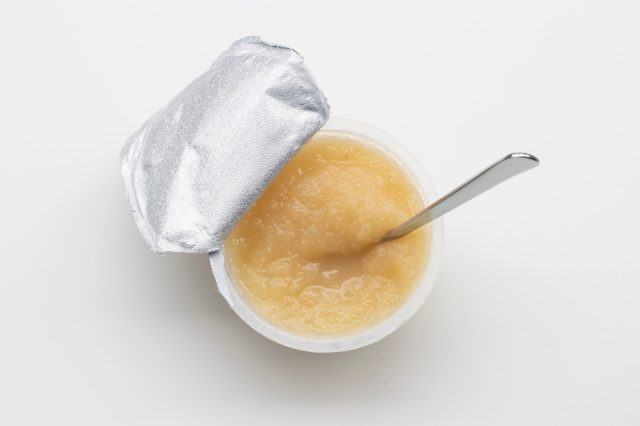
China, Germany, and Italy are the top exporters of foil, and the tariffs on plastics and foil could directly impact snacks like chips, granola bars, and cookies. "The current tariffs range from about 80% to 108%, which would be added to the cost of foil," Alison Keane, president and CEO of the Flexible Packaging Association, said last year about previous tariffs. "That would only be a percentage of the total costs of the package and would vary from package to package depending on the amount of foil."
Coffee
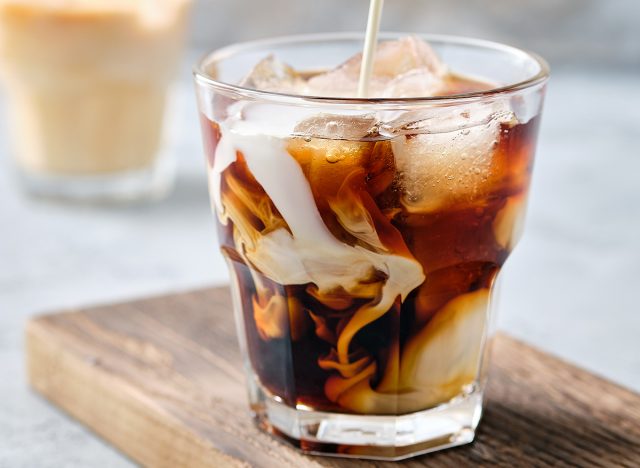
The U.S. imports the majority of its coffee from South America and Southeast Asia, and the packaging needed for these products is also sourced from overseas. "We've got coffee on a boat on the water that we don't know if we're going to have to pay an extra 10% to 30% on top of what we contracted for," Peter Moses, co-founder of Mighty Oak Roasters and Café in Queens, New York, told CBS MoneyWatch. "So it's quite challenging."
Seafood
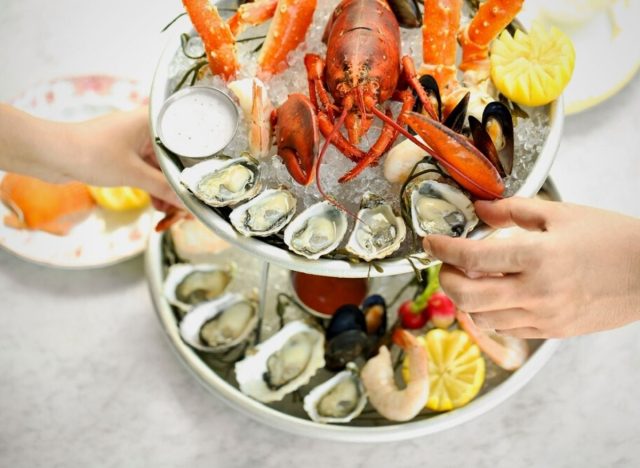
China is the world's largest producer and exporter of frozen seafood, including crab, in the world (although Norway could soon take the lead). "Tariffs will raise the cost of seafood, making the healthiest animal protein on the planet less available and more expensive," National Fisheries Institute President and CEO Lisa Wallenda Picard said.
Fruit Juice and Soda
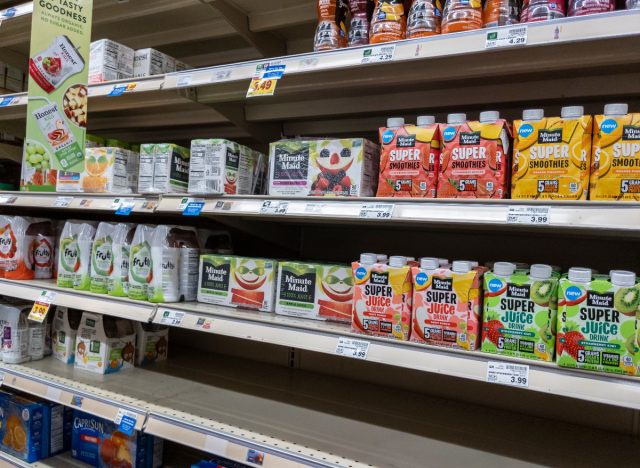
Juice boxes made of cardboard, plastic, and aluminum could become more expensive due to tariffs on packaging materials—and companies will switch to whatever they find cheapest. "If one package suffers some increase in input costs, we continue to have other packaging offerings that will allow us to compete in the affordability space," says Coca-Cola CEO James Quincey via PackagingDive. "So for example, if aluminum cans become more expensive, we can put more emphasis on PET bottles, etc., etc."
Refrigerators and Freezers
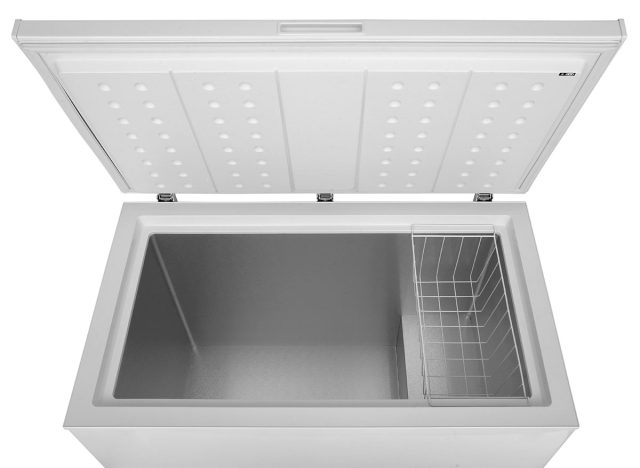
Tariffs on semiconductors and electronic components could drive up the costs of refrigerators, making it more expensive for customers to store food. "There's going to be an immediate, short-term supply shock if the … prices of chips are increased as a direct result of tariffs," said Sean Murphy, the executive vice president of policy for Information Technology Industry Council (ITI), via The Hill. "That's going to have a ripple or cascading effect across the industry. Chips go into everything we take for granted."
Imported Cheese
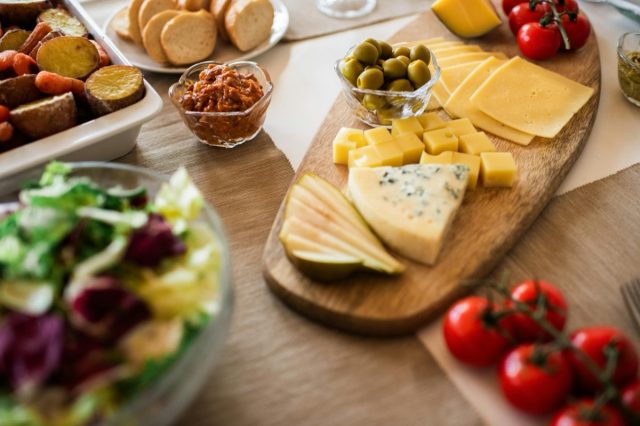
Germany is the largest exporter of cheese in the world, with Holland second, Italy third, and France fourth. Certain European cheeses have faced tariffs in the past and could again. "Our concern is that the American consumer and some of our larger customers will be very concerned and hold back with their spending," Jane Quicke, of U.K.-based Quicke's Cheeses, tells the BBC.
Chocolate

Your favorite Hershey bar could become more expensive with tariffs being leveled against cocoa beans imported from Africa and South America. Packaging and fuel-related shipping costs could also drive up prices. "If we hear the American president is going to put a tax on the price of cocoa, it's really not good for us, it doesn't help us," Ivory Coast cocoa farmer Salif Traoré tells AP.
Spices and Seasoning Blends
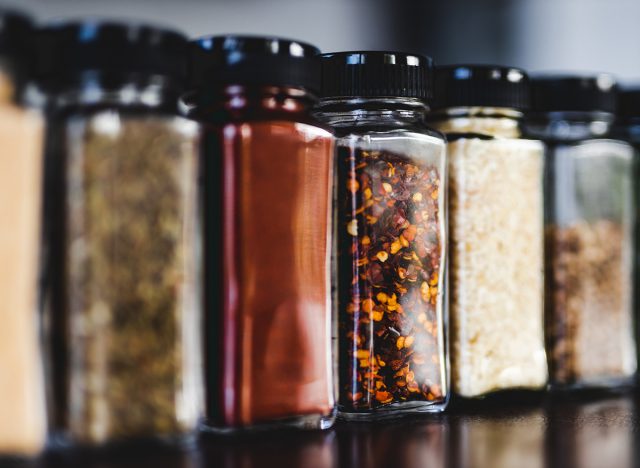
The majority of spices in the U.S. are imported from places like Mexico, Canada, India, and China. "Spice importers report that costs for Chinese-origin products have surged by 15-20% due to these tariffs, pushing businesses to seek alternative suppliers from India, Egypt, and Peru," according to Majestic Spice.
Prepared Deli Meats
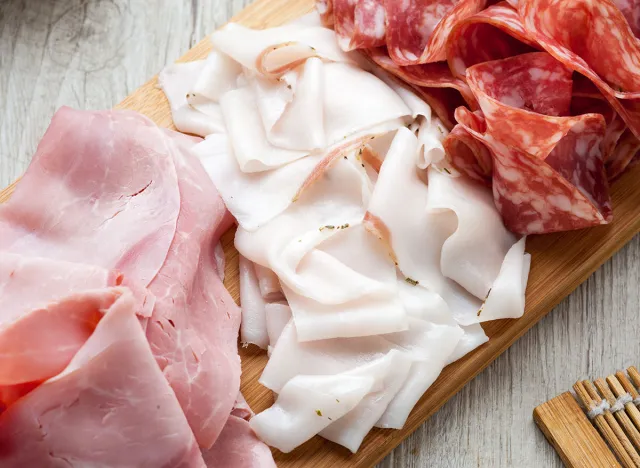
Packaged deli meats are reliant on specific packaging, which is imported into the U.S. Meat such as prosciutto which is imported to the U.S. could also go up in price. "Ever since the tariffs have become a reality, it's absolute chaos and insanity," Matt Caputo, CEO of Caputo's Market and Deli in Salt Lake City, tells Fox13Now. "It's a big part of who we are."
Cooking Oils
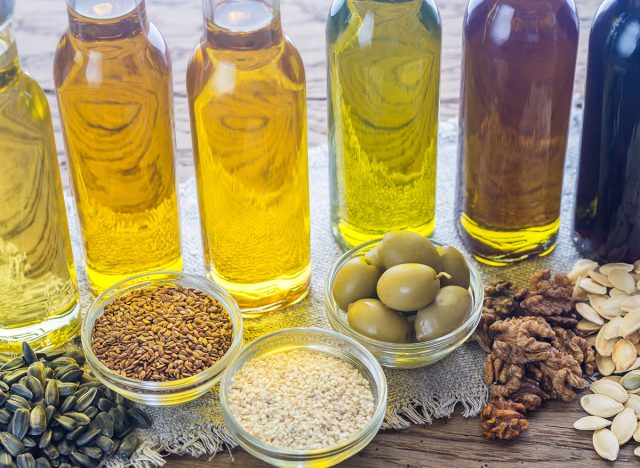
In addition to olive oil, tariffs on aluminum and plastic containers could impact the price of canola, vegetable, and sunflower oils, even those produced domestically. "Recent volatility came from uncertainties surrounding the ongoing trade war between the US and major vegetable oil trading partners," says Roxanne Nikoro, oilseeds market reporter at Expana, via Food Navigator. "Due to weather-related and tariff uncertainties, price trends have been mixed; with volatility across all markets."
Bakery Goods
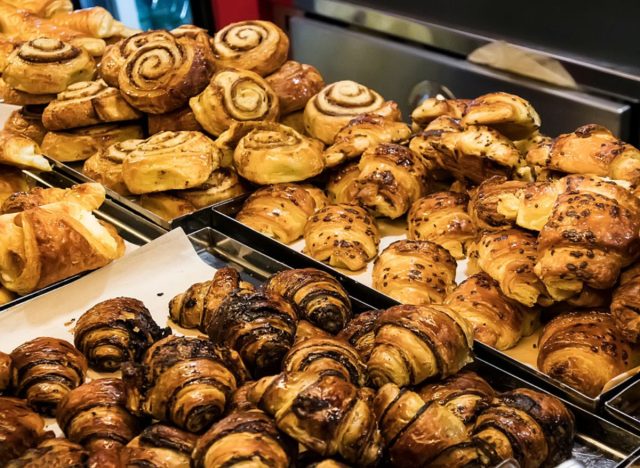
Commercial baking equipment often uses foreign components, which could become significantly more expensive—not to mention baking ingredients such as vanilla from Madagascar. Beyond Good Founder and CEO Tim McCollum says to expect a rise in vanilla prices by "47% for all U.S. importers, which will effectively knock U.S. manufacturing out of vanilla extract if it sticks. If that happens, European manufacturers will fill the void, and U.S. consumers will end up paying about 20% for it. American consumers can also expect to see a shift to synthetic vanilla as a cheaper alternative."
Microwaves and Air Fryers
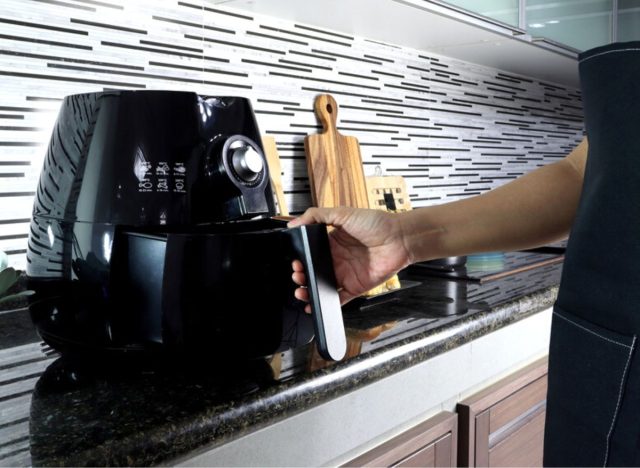
Appliances such as air fryers are mostly made overseas, primarily in China. "The tariffs on steel and aluminum that went into effect recently are affecting U.S.-made appliances that contain lots of metal," Simon Kim, CEO and founder at Glassdome, told GOBankingRates. "Additionally, many of these appliances are not made in America and will be affected by the April 2 tariffs, which could lead to price increases."









